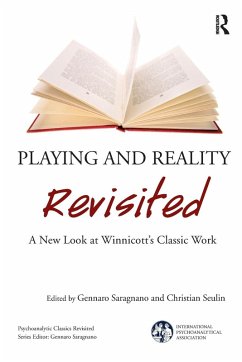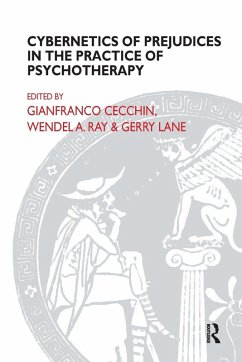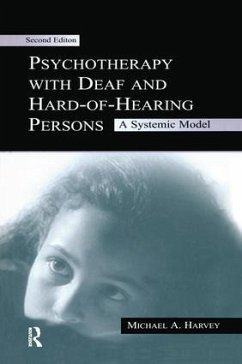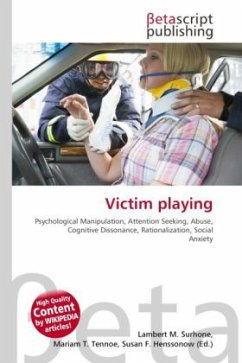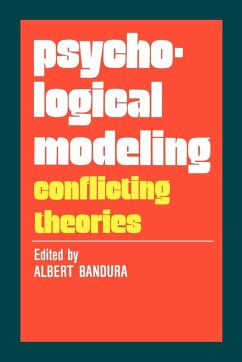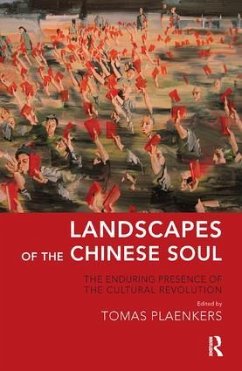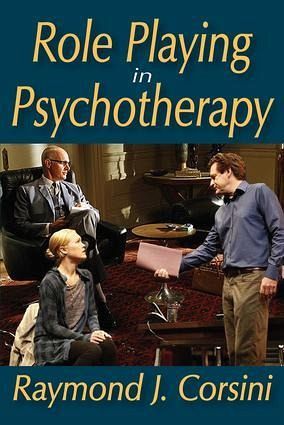
Role Playing in Psychotherapy
Versandkostenfrei!
Versandfertig in 1-2 Wochen
59,99 €
inkl. MwSt.
Weitere Ausgaben:

PAYBACK Punkte
30 °P sammeln!
Role playing is the most naturalistic form of psychotherapy. In the safety and privacy of an office, psychiatrists and psychologists guide patients in more competent ways of living, and help patients see how they behave. Role playing, which is also used for diagnostic purposes by therapists, is an unparalleled procedure for letting patients see themselves in action, and helps them establish and assimilate in concrete fashion the insights achieved in the interview.From the point of view of the patient, psychotherapy has two main aspects; the personality of the therapist, which includes the atti...
Role playing is the most naturalistic form of psychotherapy. In the safety and privacy of an office, psychiatrists and psychologists guide patients in more competent ways of living, and help patients see how they behave. Role playing, which is also used for diagnostic purposes by therapists, is an unparalleled procedure for letting patients see themselves in action, and helps them establish and assimilate in concrete fashion the insights achieved in the interview.
From the point of view of the patient, psychotherapy has two main aspects; the personality of the therapist, which includes the attitude towards the patient and their understanding; and the procedures used by the therapist, such as how he conducts therapy. The therapist sees psychotherapy as a process which helps the patient to understand themselves, to modify their attitudes and levels of aspiration, and generate new ways of behaving. It is a process of change in the sense of abandoning old concepts, coming to new generalizations, and learning new behavior patterns for a current generation.
Role playing as a psychotherapeutic technique is not as well understood as it merits. The beliefs that role playing is an exotic method which commits the user to a special school of thought, that it is used only in group therapy, or that it is difficult to learn, are common erroneous notions. This book gives a clear picture of therapeutic role playing, and explains how it is used and for what purposes. A rationale for its value and examples of its use are provided by the author.
From the point of view of the patient, psychotherapy has two main aspects; the personality of the therapist, which includes the attitude towards the patient and their understanding; and the procedures used by the therapist, such as how he conducts therapy. The therapist sees psychotherapy as a process which helps the patient to understand themselves, to modify their attitudes and levels of aspiration, and generate new ways of behaving. It is a process of change in the sense of abandoning old concepts, coming to new generalizations, and learning new behavior patterns for a current generation.
Role playing as a psychotherapeutic technique is not as well understood as it merits. The beliefs that role playing is an exotic method which commits the user to a special school of thought, that it is used only in group therapy, or that it is difficult to learn, are common erroneous notions. This book gives a clear picture of therapeutic role playing, and explains how it is used and for what purposes. A rationale for its value and examples of its use are provided by the author.





